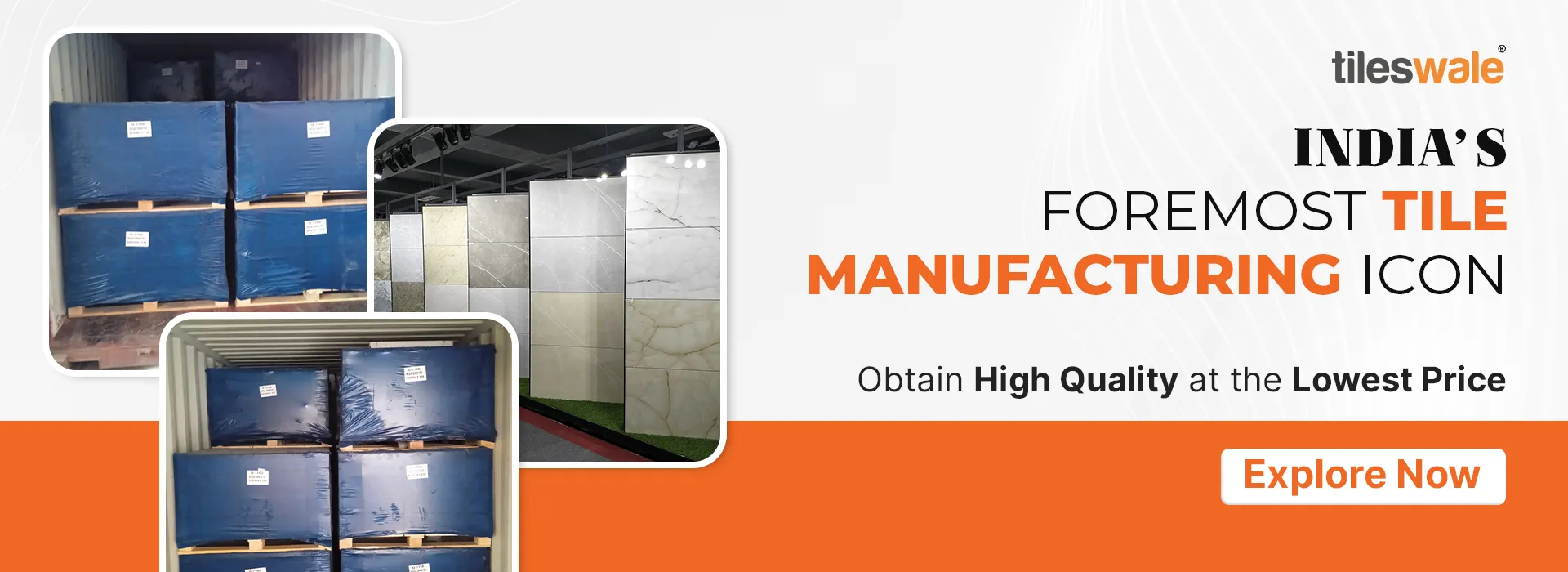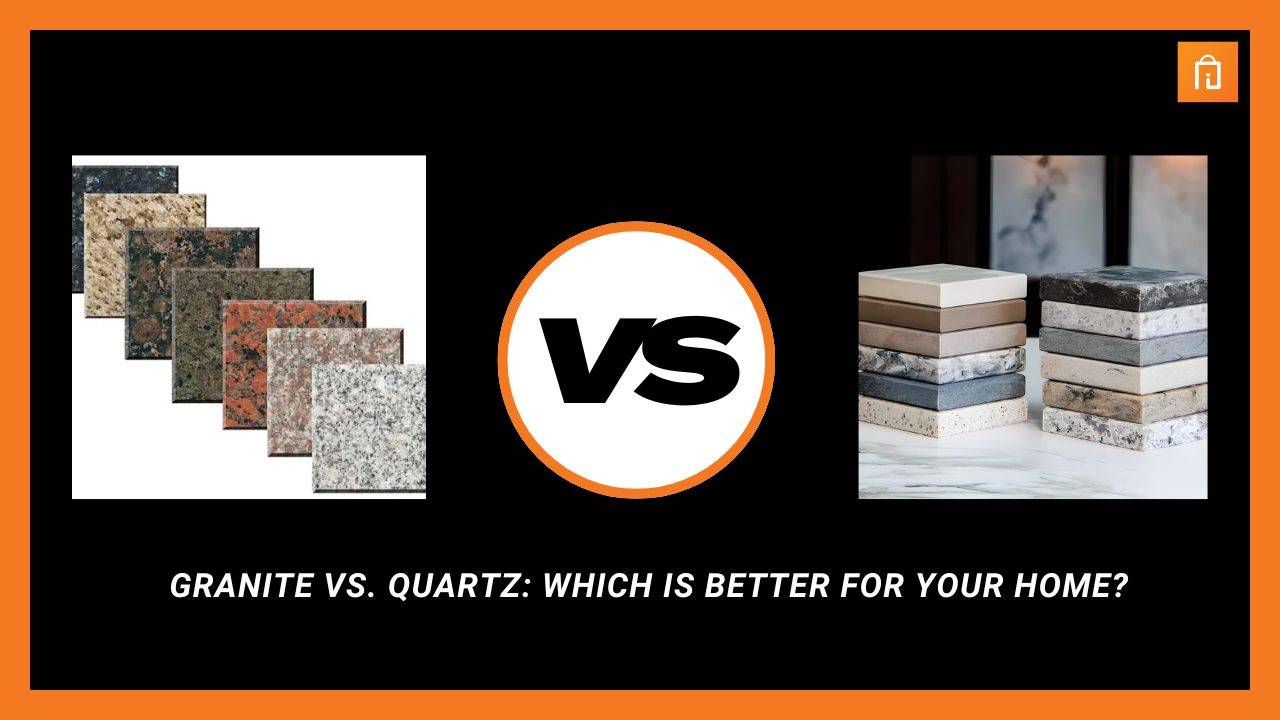
World's First Ceramic-Tile & Sanitaryware Live Marketplace. Get it on Google Play
Get it on App Store
World's First Ceramic-Tile & Sanitaryware Live Marketplace. Get it on Google Play
Get it on App Store
By Tileswale
The perfect countertop for both your kitchen and bathroom-these are two of the most talked-about materials: granite and quartz. Both durable, attractive, and with their unique benefits, it would not be easy to choose the right one between them for your house based on maintenance, look, cost, and performance. In this blog, we compare granite with quartz in terms of their key features, pros, and cons, as well as ideal applications. By the end of this post, you will understand which material is suited for your needs best.
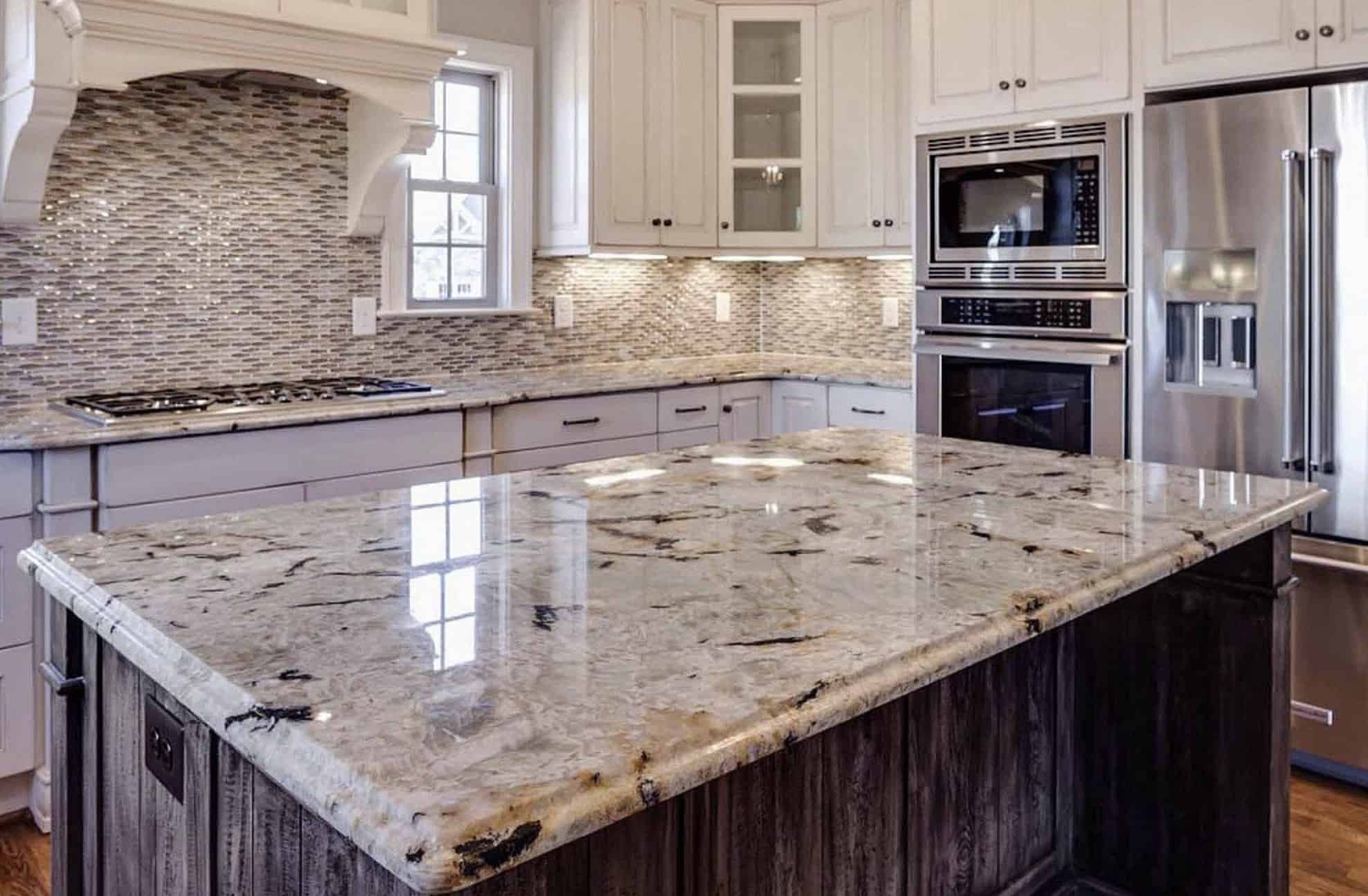
Granite is a natural stone that forms when magma beneath the ground cools and solidifies over time. It is among the hardest materials on Earth, considering it has great strength, resilience, and versatility. Granites are cut into countertops from huge blocks of stone, with no two pieces exactly alike, which may display a difference in color, pattern, and even texture. Common colors include black, white, brown, red, and gray, often veined or speckled with contrasting minerals.
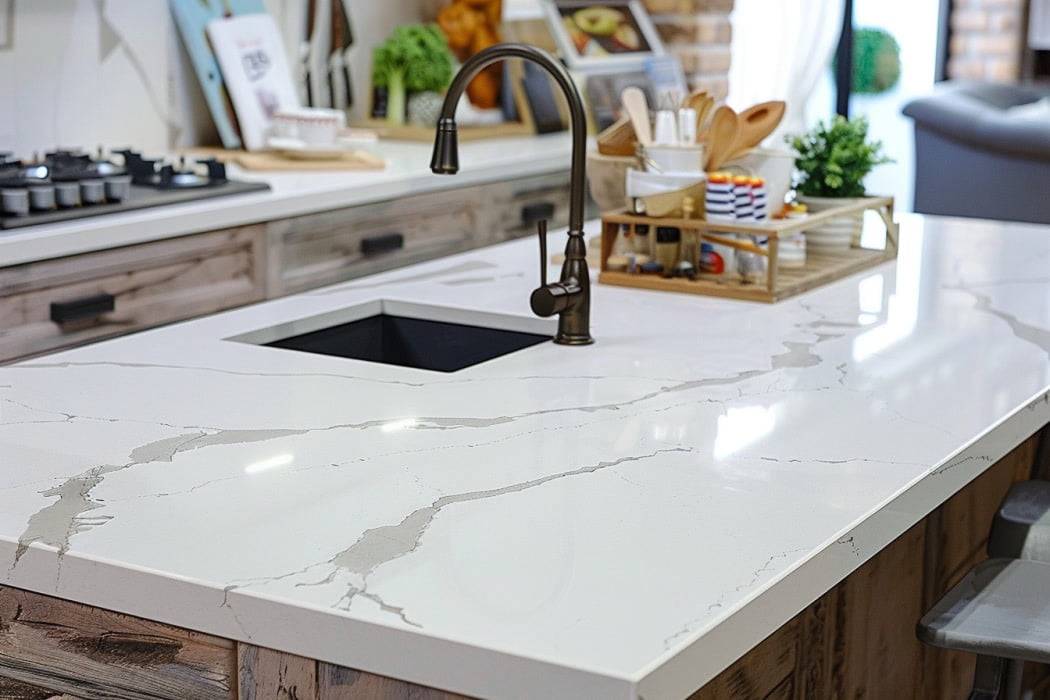
Unlike granite, quartz is an engineered stone, created by mixing about 90-95% ground natural quartz crystals with resins, polymers, and pigments. This composition gives quartz a non-porous surface, which is extremely durable and comes in many colors and patterns. Being man-made, quartz makes it possible to have more consistent patterns than with any natural stone, making it highly desirable for those who want a consistent look.
Pros: Granite is a natural stone known for its unique patterns and heat resistance. It's durable, scratch-resistant, and adds value to your home. Its natural beauty makes it highly desirable for traditional and rustic kitchens.
Cons: Granite is porous, requiring periodic sealing to avoid stains. It's also heavy, and can be more expensive for its more exotic varieties. Repairs are challenging in case of a cracked surface.
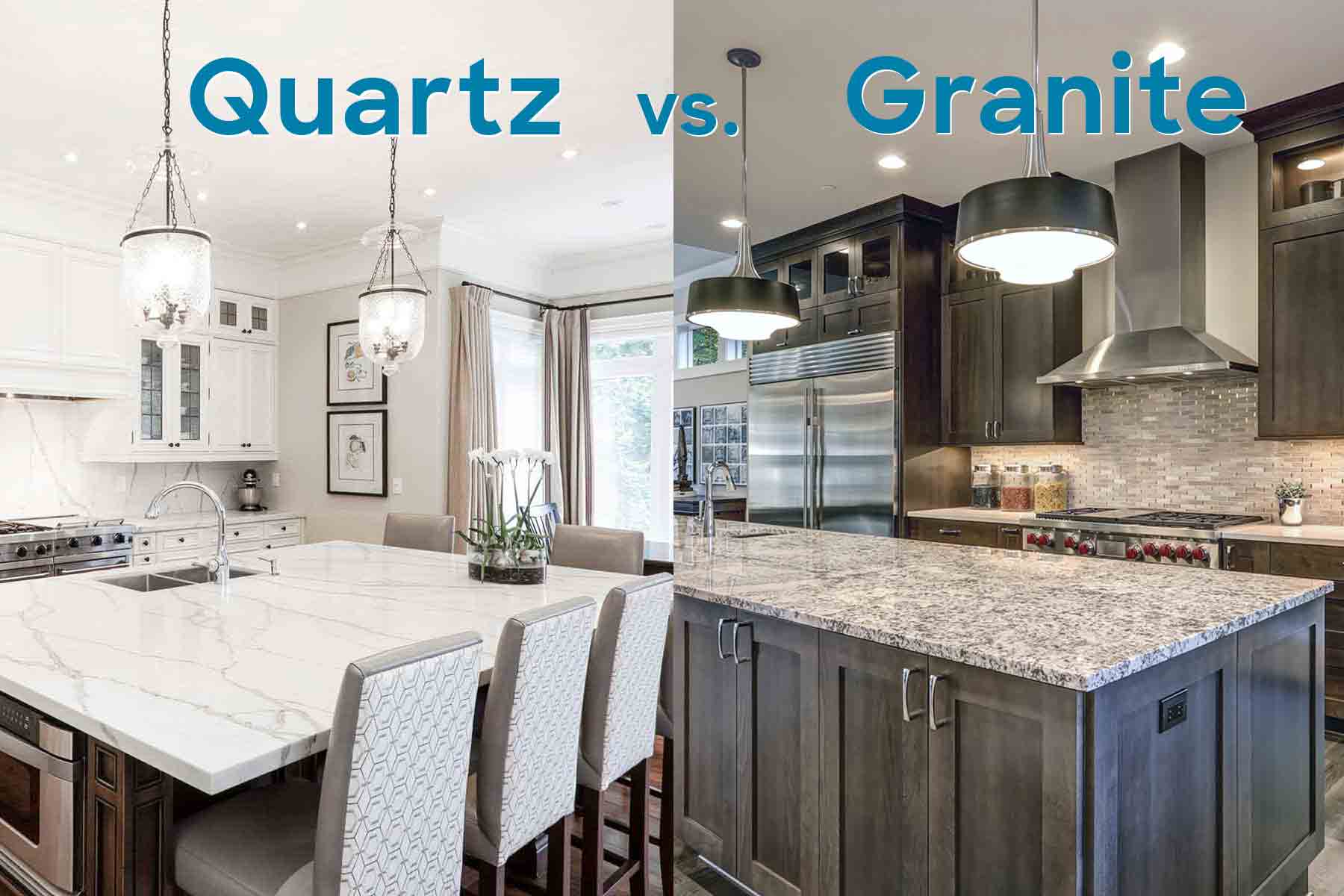
Pros: Quartz has a low maintenance requirement since it is non-porous and does not require sealing. It is durable, resistant to stains and bacteria, and available in an array of colors and patterns.
Cons: Quartz is not as resistant to heat as granite; it will discolor or even crack if it is exposed to too much heat. It may lack the natural beauty of granite since it is an engineered product.
Granite ranks among the toughest natural stones, making it perfect for kitchen countertops and other high-traffic areas. Because of its resistance to heat, hot pans can be taken directly from the oven and placed on the countertop with no fear of damage. Granite is not completely impervious to damage, though. While it is scratch resistant, it may be chipped or cracked if struck hard with a large object.
Besides, granite is porous and may absorb liquids and stains over time. This is why it needs to be sealed once every 1-2 years to maintain its resistance to stains and moisture. Poor sealing makes the granite countertops susceptible to discoloration and bacterial growth.
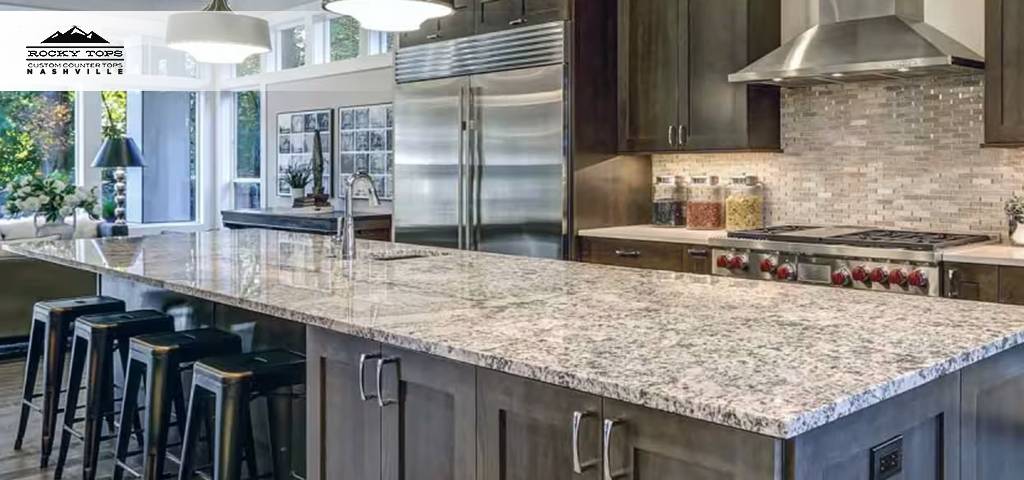
Quartz is also supremely durable, resistant to scratches and chips. The non-porous surface prevents liquid absorption, making it highly resistant to wine, coffee, or oil-based staining. However, quartz is less resistant to heat compared to granite. Putting a hot pot or pan on the surface of a quartz countertop may damage the surface by causing discoloration or cracking; thus, it's highly important to use trivets or hot pads to protect the surface from high temperatures.
As Quartz has a non-porous surface, thus sealing is not required, which in return makes this material less hassle to handle compared to granite. These features make this stone a popular choice for both kitchens and bathrooms.
Being of a porous nature, granite requires more maintenance compared to quartz. Granite countertops should be sealed on a regular basis to protect the stone from absorbed liquids and possible stains. This can be done once a year or once every two years according to the type of granite one has installed and how much wear and tear it endures. If left unsealed, granite can absorb moisture, which at times causes discoloration, mold, or bacterial growth.
Cleaning granite should be done with a mild dish soap or a natural stone cleaner. Harsh chemicals or acidic cleaners should not be used to clean it because it may destroy the surface.
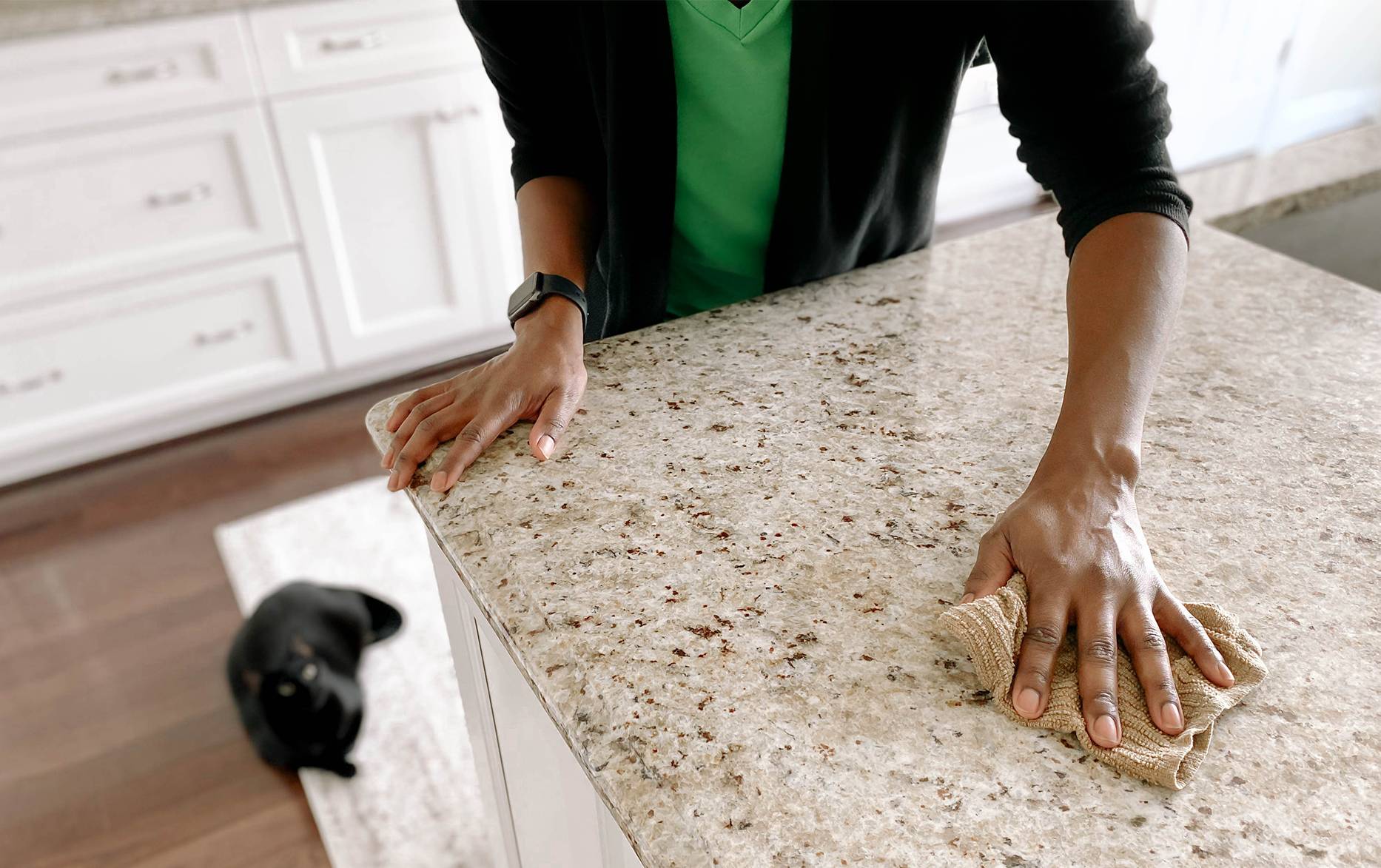
Quartz is low maintenance, much like granite, since it is non-porous and does not need sealing. Cleaning it is easy with soap and water, and it's resistant to most stains, bacteria, and mold. The non-porous surface means liquids, oils, and food particles won't penetrate the material, making it hygienic and easy to maintain.
Of course, you can't be careless with quartz either. It's scratch-resistant but not scratch-proof. You should never cut anything directly on the surface but do your cutting on cutting boards for food preparation. It's also vulnerable to high heat, so take care not to place hot pots or pans on the countertop.
Granite is prized for its one-of-a-kind, organic appearance. And because a single slab of granite also tends to be singular, quite simply, no two countertops are identical. The veining, speckling, and shade variations of this natural stone impart an air of elegance and timelessness to any kitchen or bathroom.
Whether classic with rich tones and veins, or modern and minimalist with neutrals in soft patterns, there is a granite countertop for every style. You can find granite in a super diverse range of colors-from classic blacks and whites to deep browns, reds, and greens. Moreover, its look will continuously change with the light, adding depth and character to the space.
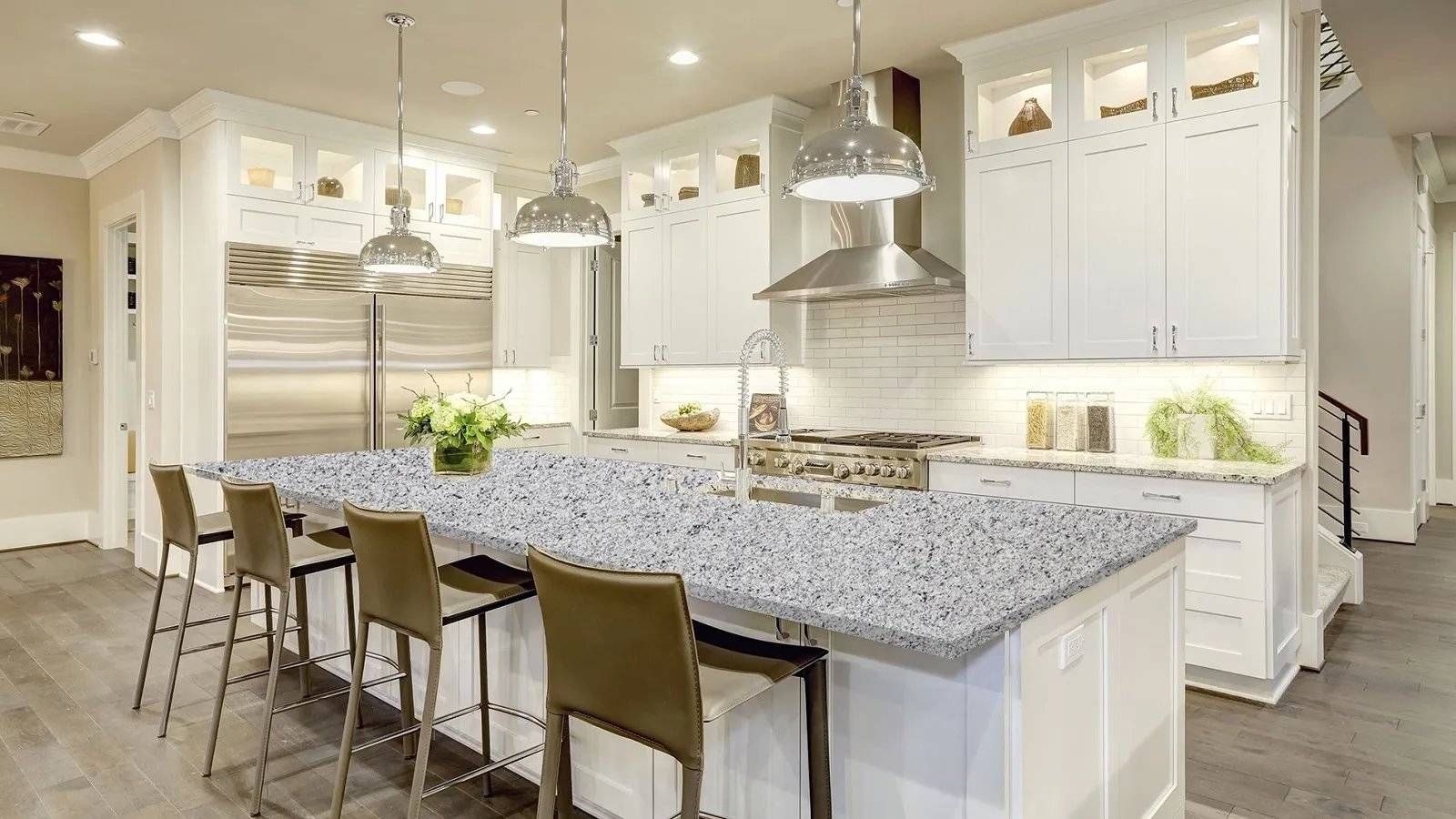
Quartz countertops have a more consistent and uniform appearance due to the engineered nature of the material. While they come in a variety of colors and patterns, the surface is generally smoother and more predictable than granite. If you’re looking for a countertop with a specific color or pattern that matches your home’s décor, quartz offers more customization options than granite.
The veining in quartz can be sleek and minimalist or bold and dramatic, often offering a more organic feel reminiscent of granite or marble. Quartz can be fabricated to resemble granite with speckles or assume the veining of marble and allow multiple options for those homeowners who want the beauty of natural stone without being concerned about upkeep.
Granite tends to be pricier than quartz mainly because of the cost of quarrying and transportation. Since granite is a natural stone, the supply of it is constrained to availability and based on the price of extraction from quarries. Installation is also costly since skilled labor is required for proper cutting, polishing, and sealing of each slab.
The cost of granite depends on the quality, rarity, and color of the stone; in general, more exotic varieties cost more.

The cost of quartz, overall, tends to be lower than that of granite due to the simplicity in manufacturing and material accessibility; quartz is manufactured in factories, which means that it is more consistent and less labor-intensive work is involved with its production.
While quartz generally comes in on the lower end of granite, both being high-end countertop choices, the price will vary based on brand and color and the thickness of the material.
It all comes down to personal preference: Granite versus Quartz, which one you believe you will like better. Ultimately, your decision boils down to your style, taste, and needs. Both these materials have their pros and disadvantages hence each is suited to a different kind of homeowner or project.
Following is a quick rundown that will help you decide,
Choose Granite If:
You like the beauty of stone because it inherently possesses unique patterns and varied colors.
Heat resistance is a priority, such as in a high-traffic kitchen where hot pots and pans are common.
You’re comfortable with regular maintenance, like resealing every 1-2 years, to preserve the stone’s appearance and longevity.
You want a more eco-friendly material with a natural, raw appeal.
You’re considering outdoor applications, as granite withstands UV rays and weather conditions.
Choose Quartz If:
You love the sleek, modern look that's consistent and can be personalized to your design vision.
You want low-maintenance surfaces that don't stain and can inhibit bacteria and moisture growth without any sealing.
Durability is also critical, mainly for areas that are used heavily, since quartz will resist chipping, scratching, and cracking.
Your design calls for a color or pattern that may not be available in granite.
You prefer indoor applications that have minimum environmental exposure to direct sunlight, for instance.
All these do have their own merits when it comes to deciding between granite and quartz for your countertops. Granite is attractive and natural, resilient, though it requires routine maintenance and sealing; while quartz, though non-porous and low-maintenance, available in a wide range of style variations, isn't as resistant to heat compared to granite.
Tileswale is one of the leading marketplaces, presenting variation in granite and quartz to fulfill every need and liking. Whether you like the classic appeal of granite or the modern convenience of quartz, Tileswale just gets it right for your home with competitive pricing and quality products.
Submit your inquiries, we will see the rest
size:
Quantity:

+ Requirements

We have received your Inquiry. We will soon connect you with relevent Sellers via tileswale App. download now!!

